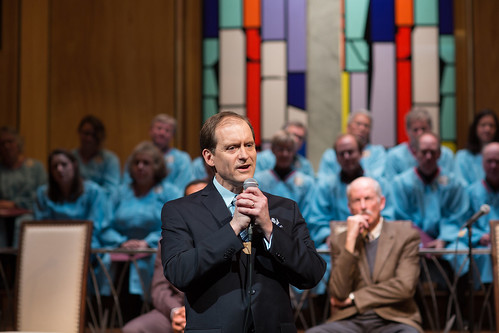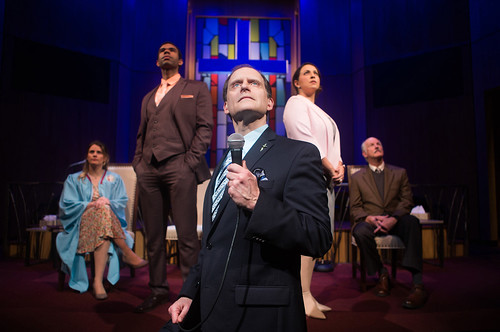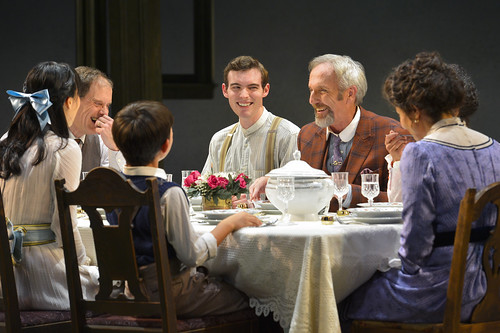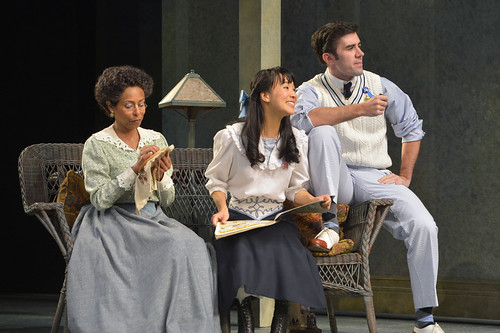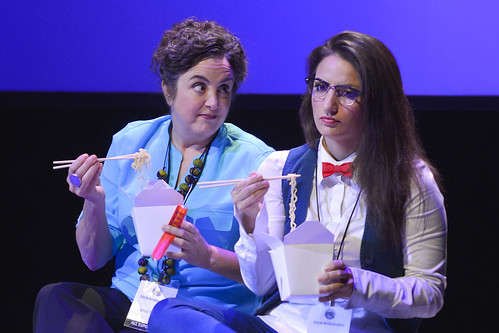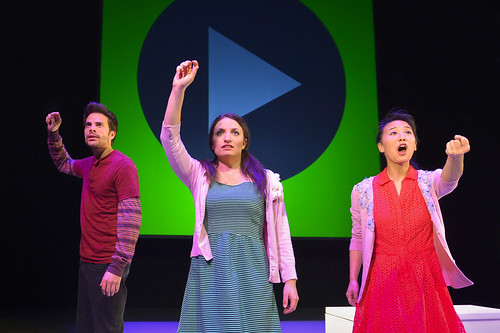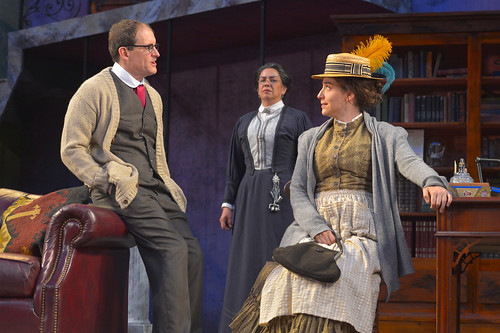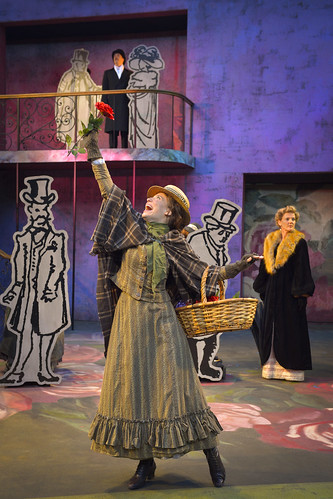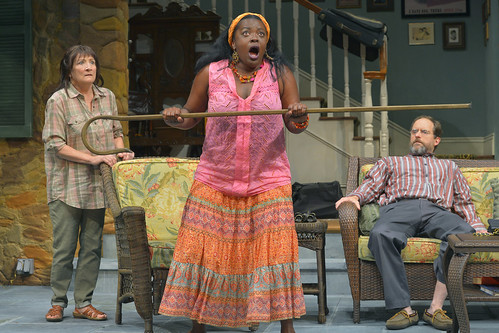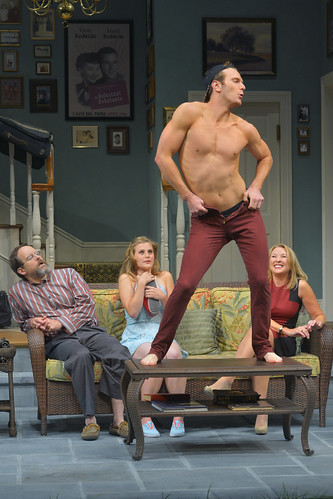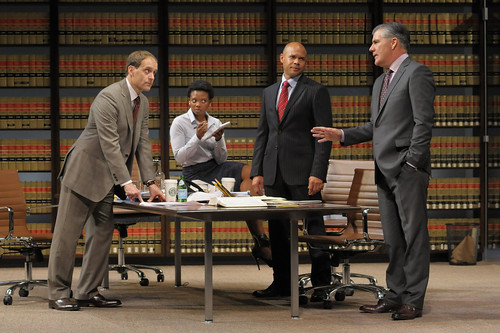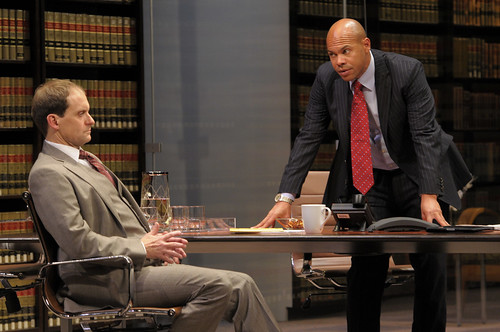
Lauren English (left) is Harmony, Khary L. Moye (center) is Brooke and Anthony Fusco is Leonard in Aurora Theatre’s world-premiere audio play The Flats by Lauren Gunderson, Cleavon Smith and Jonathan Spector.
Sitting in the intimate Aurora Theatre watching great actors close up is one of the great treats of Bay Area theater. Even though we can’t be together in that space for a while, the Aurora crew is still storytelling in its inimitably intimate way: with a world-premiere audio play by three Bay Area writers. The Flats by Lauren Gunderson, Cleavon Smith and Jonathan Spector is delivered in three installments. Parts 1 and 2 have already been released, and Part 3 comes out Nov. 6. All three episodes will then be available for streaming, which is good, because you likely won’t be able to listen to just one.
Plays on the radio used to be a regular thing. I even have original cast recordings of Broadway plays. But somehow, this most rewarding theatrical form has faded from mainstream popularity, though audiobooks and podcasts have admirably carried the audio drama mantle in various ways. What’s rewarding about The Flats (of which I’ve heard two of the three episodes) involves three excellent actors – Lauren English, Khary L. Moye and Anthony Fusco – and an intoxicating blend of tension, humor and substance.
Set in Berkeley, the play capitalizes on the dis-ease with which we’ve all become acutely acquainted these last seven months. But in this world, there’s not a global pandemic, but rather something much scarier and more intriguing. I won’t say what it is because that’s part of the fun. But suffice it to say that citizens are experiencing tight government quarantining, with certain liberties allowed here and there. Grocery stores are sorely understocked, and fresh produce is scant. In one particular triplex, three residents – well, two residents and the owner, who suddenly shows up in the vacant unit – are stuck at home with only their neighbors to distract them from the … situation.
Harmony (English) is escaping her troubled marriage and, consequently, her children. Brooke (Moye) is a bit more enigmatic but offers his landlord one of the most intriguing housewarming gifts ever: caterpillars that will soon become butterflies. And Leonard (Fusco) is a drug-taking old Berkeley hippie with his own radio show and a number of conspiracy theories that might not all be preposterous. It’s an uneasy mix of personalities, of course (hard to have drama without tension), and in addition to the stress of what’s going on in the world, this trio is also dealing with issues of race and relationships and earth-shattering revelations.
Director Josh Costello, ably abetted by composer/sound designer Elton Bradman, creates a wonderfully detailed sonic world in which you really feel like you’re with these people, and the actors deliver marvelously detailed performances that create vivid images of the characters and their states of mind.
There’s much more to say about this audio drama, but the fewer details you have, the richer your experience amid the scintillating heights of The Flats.
FOR MORE INFORMATION
Single tickets for The Flats are available for $20 here, along with season memberships. The final (of three) episode of The Flats drops Nov. 6. Afterward, all three episodes will be available for streaming.

